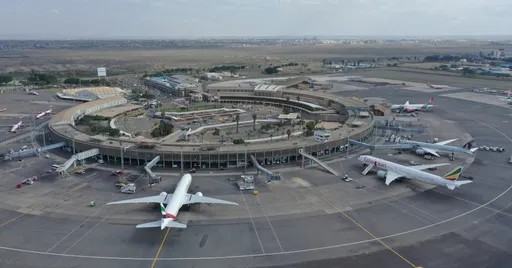By Omar Abdel-Razek
As far as bringing back this nostalgia goes, Youssef Chahine's well-known film Alexandria, Why? (1979) is arguably the most notable artistic creation.
Since the last decade of the twentieth century, Egypt has been gripped by a wave of nostalgia for its colonial past, under the moniker of “Cosmopolitan Egypt”.
Through Chahine's gaze, the film presents an open city in which Jews, Italians, Greeks, and Egyptians live in harmony during the interwar years in Alexandria.
The movie depicts this portrayal of life as threatened by the German advance into the Western Desert during the Battle of El Alamein (1942) that forced many people to flee in search of a safe haven.
Thirty years later, a similar nostalgia is summoned in the 2009 film Heliopolis - this time by highlighting the fate of the suburb of Heliopolis in Cairo.
Built in Eastern Cairo by the Belgian real estate magnate Édouard Louis Joseph, 1st Baron Empain, Heliopolis was intended to be a model suburb for middle class Egyptian effendis, wealthy Jews and Europeans. This celebration of a ‘Cosmopolitan Egypt’ is not limited to cinema and drama, but extended to literary works.
Most notably, it appears in No One Sleeps in Alexandria by the Alexandrian novelist Ibrahim Abdel Meguid and then the works of the late novelist Edward Al-Kharrat, particularly his 1991 novel, City of Saffron.
'Invented tradition'
Nostalgia for a "Cosmopolitan Egypt" has become more widespread in Egyptian society over time due to the rapid growth of digital culture and internet penetration.
It is now no longer limited to intellectual circles, but reaches ordinary people through social media forums where they bemoan the ugly present while lamenting the beautiful past.
Pages dedicated to late monarchs, and the beautiful leafy streets, squares, and palaces of the early years of the twentieth century are a strong reminder of the decline of Egyptian cities over time.
However, it is no accident that this phenomenon emerged at the end of the 1970s, while Egypt was pivoting away from its Arab and African orbits that Gamal Abdel Nasser and the July 23rd Revolution had forged.
In his rapprochement with the United States and the signing of the peace treaty with Israel, Nasser’s successor, Anwar Sadat, was keen to shape a new Egyptian culture - one that viewed Europeans as friends and Jews as compatriots who shared a sense of community with the Egyptians in the past - even if the truth ran contrary to this idea.
European opportunists
Egypt was hardly alone in adopting this approach. Many North African and sub-Saharan African countries facing economic deterioration and the lack of success of their nationalist projects succumbed to the need to revisit their colonial pasts - with a degree of exultant.
But the idealisation of cosmopolitanism creates a mood of "invented tradition" and selective memory for an era that never existed in modern Egypt.
Even if we subscribe to the notion that cosmopolitanism at its core sees people as citizens of the world, rather than belonging to a particular nation-state, it is in no way representative of the social landscape of the country being portrayed in writings from the middle of the nineteenth century.
The number of foreigners moving into modern Egypt during the reign of Muhammad Ali Pasha was small - mainly experts brought in to help with the country’s ‘modernisation’ and its economic expansion.
It was the death of the Pasha and the weakness of his successors that opened the doors for European opportunists to flock to Egypt in large numbers.
They relied on the benefits of the “capitulations system” that provided legal and political protections for the subjects of foreign countries, allowing European powers to exercise extraterritorial jurisdiction over their own nationals within Egypt.
In this sense, Egypt was not a “cosmopolitan” society, but rather a society of segregated communities.
Foreigners were at the top of the social ladder, protected by their consulates and judged by their own courts and legal systems.
Donkey tour dispute
The collective memory of ordinary people is drastically at odds with the selectively nostalgic memory of "cosmopolitan" Egypt.
How can one forget that their country was occupied for seventy years because a foreigner refused to pay for a donkey ride?
The story goes that on the tenth of June 1882, a Maltese man hired a donkey from an Egyptian in Alexandria and asked to be taken on a tour under the scorching Alexandrian sun. Soon a dispute ensued over the charge, and the Maltese man killed the Egyptian.
He fled to the European district of the city - when Egyptians pursued the culprit in an attempt to avenge the local man’s death, the Europeans opened fire, killing dozens.
The British fleet, waiting in the Mediterranean Sea opposite to Alexandria, has already threatened a military invasion to protect the foreigners in the city. That was precisely what ensued.
In the social strata, Europeans came at the top, followed by the Greeks, the European Jews, then Christian Syrians. The Egyptians were at the bottom.
It is clear, then, that most Egyptians were not part of the "cosmopolitan Egypt" project as it is retold now. Nor were the luxurious buildings and wide streets reserved for them to stroll through while wearing their Jelabiya or abaya, since they were totally isolated in their neighbourhoods in Cairo and Alexandria, or the vastly forgotten rural Egypt.
Egyptian nationalism
Foreigners in 1940s Egypt, as Edward Said recounts in his memoir Out of Place (2000), were on isolated islands with areas and style of life that were not linked to most Egyptians in any way. The period of the struggle for independence at the turn of the twentieth century underscored that difference.
Naguib Mahfouz's Cairo Trilogy is perhaps the best reading of that reality; he depicts the districts of Cairo and its inhabitants as a mixture of local Egyptian merchants and artisans, suppressed by the foreigner i.e the British and their forces.
Their salvation was not in cosmopolitanism, but rather in the new “Egyptian nationalism”, a liberal melting pot for those who considered themselves Egyptians with no reference to “capitulations” or consular courts.
Stripping foreigners of such privileges was the start of the decline of the foreign presence in Egypt which culminated with the July Revolution. It was part of the “decolonisation process”.
It is ahistorical to invent an image of "cosmopolitanism" that most Egyptians did not know in the past.
Yet it is understandable that nostalgia can lead to an invented tradition, that typically harnesses the past as a beautiful picture - even if most of its details are invariably ugly.
The author, Omar Abdel-Razek, is a Sociologist and Former Editor at BBC Arabic. He lives and works in London.
Disclaimer: The views expressed by the author do not necessarily reflect the opinions, viewpoints and editorial policies of TRT Afrika.
➤Click here to follow our WhatsApp channel for more stories.


















.JPG?width=512&format=webp&quality=80)




